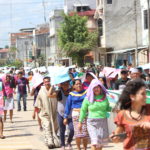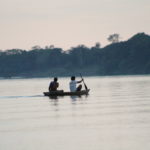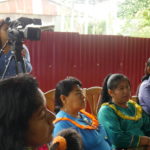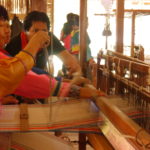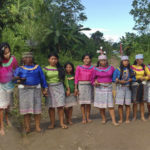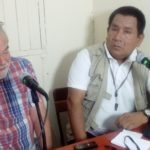
RADIO SHIPIBO : reviving a language, mobilising a nation and serving as a tool for territorial governance for the Shipibo-Konibo-Xetebo people in the Peruvian Amazon
The Shipibo-Konibo-Xetebo are an indigenous people of the Peruvian Amazon with an estimated population of 35,000 individuals. Its 144 communities are distributed in the areas along the Ucayali River and its tributaries (Pisqui, Callería, Aguaytía, Pachitea), and on the banks of the Imiria and Yarina lakes, from the mouth of white lands in the province of Ucayali to the mouth of the River Cuenca in the current province of Atalaya across the boundaries of the Loreto, Ucayali and Huánuco regions. The Shipibo also live at the frontier with Bolivia and Brazil in the department of Madre de Dios.
Coshikox, the elected council representing the Shipibo-Konibo-Xetebo Nation, is dedicated to realising the self-governance of ancient Shipibo integral territory. As conceived by Coshicox, autonomous governance is not as a legal idea based on property and individual rights, but an extension, and adaptation to the territorial scale, of the relationship of the Shipibo with nature. The repressed power of the excluded and their silenced capacity to represent their territory have ended-up producing new concepts that question and de-colonize reality. ‘Being Shipibo’ means relating to a broad and changing notion of identity that includes mixed origin, displaced communities and urban lives in all the main cities of Peru and other countries of the world. This indigenous identity is guided by practice, rather than tradition or ethnicity. If ‘culture’ is whatever guarantees empathic cooperation among individuals in a particular context, the Shipibo culture in the Amazon region is infused with the values of belonging, beauty, environmental wisdom and justice.
One of Coshikox’s major responsibilities is to promote the union, communication, and rapprochement of the Shipibo nation. And a solution to the dispersed condition of the peoples is Radio Shipibo: a community radio programme that acts as a strategic pillar to incorporate even the most isolated individuals and communities into a network of Shipibo collaboration and exchange, strengthening the ability of everyone to mobilize together, as a nation. In the words of the Ronald Suarez, president of COSHIKOX: “Through the radio we share information about the social and political events in our nation. We promote the use of our language. We send warnings and instructions against territorial and environmental threats that may affect the well-being of our land. We share information about our agreements and celebrations. It was because of Radio Shipibo that in 2018, 10,000 Shipibo brothers arrived in Pucallpa for the Indigenous March!” In this light, Radio Shipibo serves as a territorial governance tool.
Generating consensus and mutual support in a population that has been affected and fragmented throughout centuries is a process that requires empathy, continuity and courage. “Our community radio program is a pillar in the strategy to exercise sovereignty in territorial, economic, and environmental matters. The foundation of everything is the cultural way in which we look at the world. We are not afraid of ‘progress’ and look forward to our indigenous identity in the future. We will cultivate our autonomy through new technologies, we will revitalize our ancestral knowledge and use it to wisely manage our territory and natural resources.”
The PKF Foundation grant will support one year of radio Shipibo programming (2 hours each month) but also – to begin with — four workshops dedicated to the Radio Shipibo communicators. The first will discuss the theme and practice of autonomy and consolidate the knowledge and language necessary to communicate Coshicox’s objectives and will be held in collaboration with the Amazon School of Human Rights. The second will deal with the historical processes that have allowed the occupation of indigenous territories and their consequences, as well as the presence of extractive companies. It will discuss the meaning and influence of globalization and the conflicts it has caused, as well as state policies, interculturality and the struggles of indigenous peoples for the defence of their territories. The third workshop will offer an overview of the territorial, human, and ecological rights of the Shipibo from the perspective of customary law and other legal systems. And the fourth will be a training for young people who wish to serve as volunteers for Radio Shipibo. It will introduce them to the Coshicox mission and the technologies necessary to produce a radio programme. Interestingly, a direct telephone line will be made available as part of the radio programme, so that listeners will be able to communicate directly online for public announcements, as well as for sharing experiences and learning. This will be particularly useful to share information about contracts with logging companies, as they may try to take advantage of community forest management plans to commit forest crimes.
Among their many benefits, the programmes of Radio Shipibo will promote the speaking of the Shipibo language and the rapprochement of a dispersed people with its shared cultural heritage. The radio will disseminate music, stories, and knowledge that highlight the Shipibo-Konibo-Xetebo worldview.


